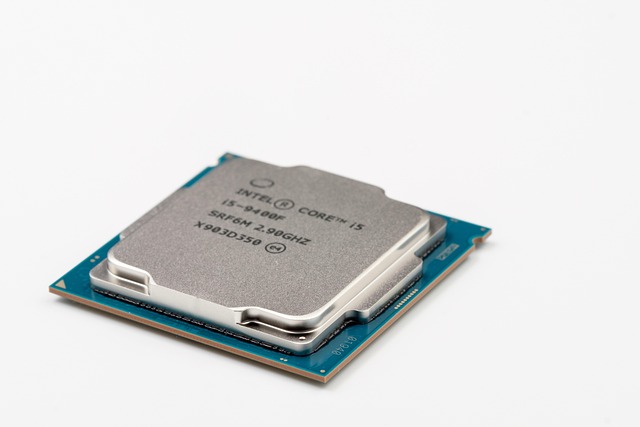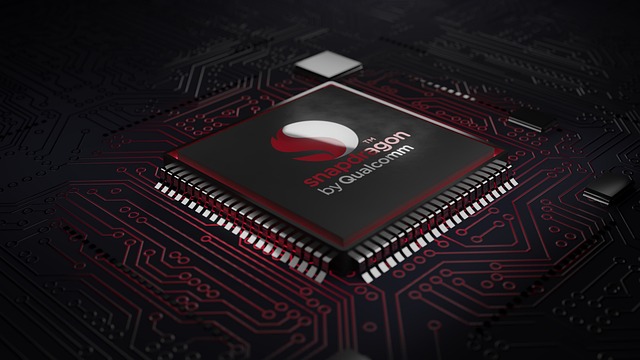Understanding Computer CPUs: The Heart of Modern Computing
Introduction: What Is a Computer CPU?
The Central Processing Unit, commonly known as the Computer CPU, is the brain of your computer. It’s responsible for interpreting and executing the majority of commands from your computer’s hardware and software. Every time you boot your computer, click an icon, or type a word, your CPU is hard at work behind the scenes. In this blog post, we’ll explore the fundamental aspects of CPUs, how they work, their importance, types, how to choose one, and much more. Whether you’re a curious beginner or a tech enthusiast wanting to deepen your understanding, this guide is designed for you.
Why Is the CPU Called the “Brain” of the Computer?
Just as the brain controls all activities in our body, the CPU controls all functions in a computer. It processes instructions, performs calculations, and manages the flow of information. Without a CPU, your computer simply cannot operate.
Key Functions of a Computer CPU:
- Processing Instructions: CPUs read and carry out instructions stored in your computer’s memory.
- Performing Calculations: From simple math to complex algorithms, CPUs calculate everything required for your computer’s tasks.
- Managing Data Flow: CPUs send and receive information to and from other components, such as RAM, storage, graphics cards, and more.
How Does a CPU Work?
A CPU processes data by following a series of steps: fetching instructions, decoding them, executing them, and storing results. This is known as the fetch-decode-execute cycle.
The Fetch-Decode-Execute Cycle Explained:
- Fetch: The CPU gets an instruction from memory.
- Decode: It translates the instruction into signals.
- Execute: The CPU carries out the instruction, possibly performing a calculation, moving data, or making a decision.
This cycle repeats billions of times per second, enabling your computer to run smoothly.
Inside the CPU: Main Components
A CPU might look like a small chip, but inside, it’s a complex network of microcomponents. Here are the core parts:
- Arithmetic Logic Unit (ALU): Handles mathematical and logical operations.
- Control Unit (CU): Directs the flow of data and instructions inside the CPU.
- Registers: Tiny, super-fast memory spots inside the CPU that temporarily store data and instructions.
- Cache: A small but fast memory used for frequently accessed data.
- Clock: Keeps everything in sync, controlling the speed at which the CPU operates.
Computer CPU Architecture: What Makes a CPU Powerful?
CPU architecture refers to how a CPU is designed. It determines its efficiency, speed, and compatibility with software. Let’s break down key architecture concepts:
- Cores: Modern CPUs have multiple cores. Each core can perform tasks independently, making the CPU faster and more efficient. Dual-core, quad-core, and even octa-core CPUs are common today.
- Threads: Threads are the smallest tasks a CPU can handle. Many CPUs can handle multiple threads per core (thanks to technologies like Hyper-Threading), boosting performance.
- Clock Speed: Measured in Gigahertz (GHz), clock speed tells you how many cycles a CPU can perform per second. Higher speeds mean faster performance, but more speed also means more heat and power usage.
- Cache Memory: CPUs have different cache levels (L1, L2, L3), providing quick access to frequently used data and instructions.
Types of CPUs: Desktop, Mobile, and Server CPUs
CPUs come in different types, each designed for specific uses.

Desktop Computer CPUs
These are found in personal computers and laptops. They are built for balance—good performance at reasonable power consumption.
Mobile CPUs
Used in smartphones, tablets, and some laptops. Mobile CPUs prioritize power efficiency to maximize battery life. They are often integrated with graphics processors and other features.

Server CPUs
These are designed for servers in data centers. Server CPUs focus on stability, multitasking, and handling heavy loads. They may have many cores and support advanced error-checking mechanisms.
Major CPU Brands and Popular Models
Two major companies dominate the CPU market: Intel and AMD. Each offers a range of processors for various needs.
- Intel: Known for Core i3, i5, i7, and i9 processors. Intel Xeon CPUs are popular in servers.
- AMD: Famous for Ryzen series for desktops/laptops and EPYC for servers. AMD CPUs are known for competitive pricing and strong multitasking.
How to Choose the Right Computer CPU for Your Needs
Choosing a CPU depends on what you want to do with your computer.
For Everyday Users
If you use your computer for browsing, watching videos, or basic office tasks, a mid-range CPU like Intel Core i5 or AMD Ryzen 5 is usually enough.
For Gamers and Creators
Gaming and creative work like video editing or 3D modeling need powerful CPUs. Look for high core counts, high clock speeds, and good cache memory. CPUs like Intel Core i7/i9 or AMD Ryzen 7/9 are ideal.
For Professionals and Servers
If you run servers, virtual machines, or scientific applications, choose CPUs with many cores, high reliability, and advanced features like ECC memory support.
CPU Socket and Compatibility
A CPU must fit into the motherboard’s socket. Not all CPUs fit all motherboards. Always check your motherboard’s CPU compatibility before buying or upgrading.
Common CPU Sockets
- LGA (Land Grid Array): Used by Intel.
- PGA (Pin Grid Array): Used by AMD.
- BGA (Ball Grid Array): Often used in mobile devices; not replaceable.
CPU Cooling and Power Consumption
CPUs generate heat. Efficient cooling is needed to keep them running smoothly and prevent damage.
Types of Cooling Solutions:
- Air Cooling: Uses fans and heat sinks. Simple and cost-effective.
- Liquid Cooling: Uses water or special fluids to absorb and dissipate heat. More effective, especially for high-performance CPUs.
Power consumption is measured in watts (W). More powerful CPUs consume more energy and need better cooling.
Overclocking: Boosting CPU Performance
Overclocking means running the CPU at a higher speed than its official rating. This gives more performance but increases heat and risk. Not all CPUs, and not all motherboards, support overclocking.
Tips for Safe Overclocking:
- Make sure your cooling system is adequate.
- Increase clock speed gradually.
- Monitor temperatures and system stability.
CPU Performance: What Makes a CPU Fast?
CPU speed depends on several factors:
- Core Count: More cores allow more tasks to run at once.
- Clock Speed: Higher speed means each core works faster.
- Cache Size: Bigger cache helps handle more data quickly.
- Architecture: Newer designs are more efficient.
Benchmarks
Benchmarks are tests that measure how well a CPU performs. Popular benchmarking tools include Cinebench, Geekbench, and PassMark.
CPU Evolution: From Single-Core to Multi-Core
Early CPUs had just one core. Today, even budget CPUs have two or more. Multi-core processors allow a computer to handle many tasks at once—watching a video, browsing the web, and running antivirus scans—all without slowing down.
CPU and RAM: What’s the Relationship?
RAM (Random Access Memory) and CPU work together. RAM stores data and instructions the CPU needs right now. More RAM lets the CPU access information faster and run multiple programs smoothly.
CPU and GPU: What’s the Difference?
The CPU handles general computing tasks. The GPU (Graphics Processing Unit) is specialized for graphics and visual output. For gaming, design, and video editing, a good GPU is essential along with a powerful CPU.
CPU in Everyday Devices
CPUs aren’t just in computers. They’re in smartphones, tablets, smart TVs, cars, and even washing machines. These “microcontrollers” run on simpler CPUs optimized for specific tasks.
Energy Efficiency and Modern CPUs
Modern CPUs use advanced techniques to save energy, like dynamic frequency scaling and sleep states. This helps keep laptops cool and batteries lasting longer.
Common Problems and Maintenance Tips
- Overheating: Can cause crashes or hardware damage. Clean dust from fans and heat sinks regularly.
- Performance Lag: Caused by outdated hardware, overheating, or insufficient RAM.
- Compatibility Issues: Always check CPU, motherboard, and RAM compatibility.
Future Trends in CPU Technology
CPU technology keeps evolving. Here are some trends to watch:
- Smaller Transistors: Chips are made with transistors measured in nanometers (nm). Smaller transistors mean faster, more energy-efficient CPUs.
- AI Integration: CPUs are being designed with artificial intelligence features for smarter performance.
- Heterogeneous Computing: Combining CPUs with specialized chips (like GPUs, AI accelerators) for better multitasking.
- Quantum Computing: Still experimental, but quantum CPUs could revolutionize calculations.
Frequently Asked Questions About CPUs
- What is the difference between 32-bit and 64-bit CPUs?
- 64-bit CPUs can handle more data and memory at once, making them faster and more capable for modern tasks.
- Can I upgrade my CPU?
- It depends on your motherboard and the CPU socket. Check compatibility before upgrading.
- Does a faster CPU always mean a faster computer?
- Not always. Other components, like RAM, storage, and GPU, also affect speed.
- How important is cooling?
- Very important. Good cooling keeps your CPU performing well and extends its life.
Conclusion: The Core of Computing
The CPU is at the heart of every computing device. Choosing the right CPU, keeping it cool, and pairing it with suitable components ensures a fast, reliable experience. As technology advances, CPUs will continue to get smarter, faster, and more efficient, powering everything from supercomputers to smart home devices.
Optimizing your knowledge about CPUs helps you make better decisions whether you’re buying a new computer, upgrading your system, or just exploring the tech world. Remember, the CPU is where the magic happens—and understanding it brings you closer to the marvels of modern computing.

